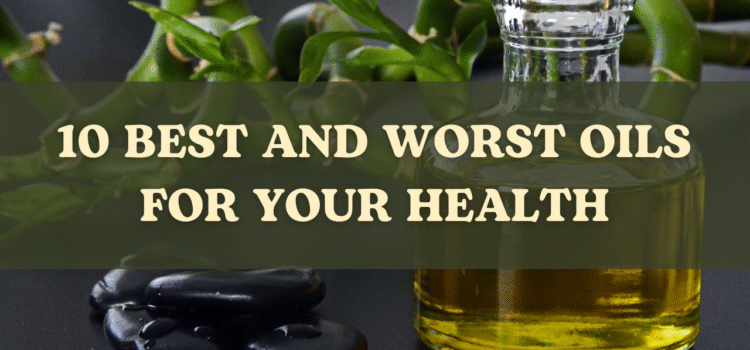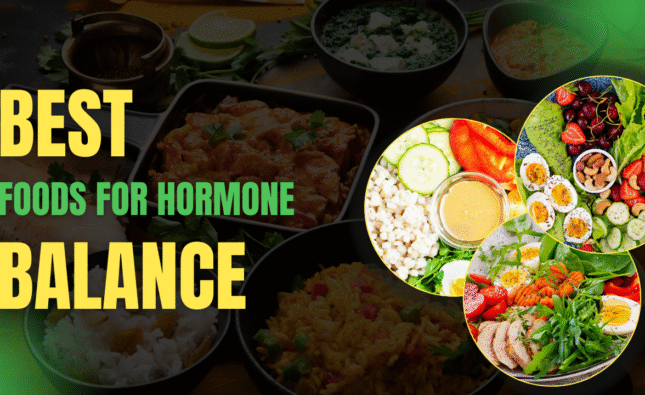
10 Best and Worst Oils for Your Health: What You Need to Know in 2025
Choosing the right oils for cooking, baking, or salads can significantly impact your overall health. From managing cholesterol to reducing inflammation, the type of fat you consume plays a vital role in long-term wellness. In this blog, we’ll explore the best and worst oils for your health, helping you make smarter choices in the kitchen.
Whether you’re looking for anti-inflammatory benefits, heart-healthy fats, or just want to avoid harmful oils, this list of the 10 best and worst oils for your health is designed to guide you with the latest research-backed insights.
Why Oil Quality Matters for Your Body
Oils are a primary source of fat in most diets. While some fats are essential for energy, hormone regulation, and brain function, others can raise LDL cholesterol and promote inflammation. The difference lies in the oil’s fat composition and processing methods.
Types of Fats in Oils – A Quick Breakdown
| Fat Type | Examples | Health Impact |
|---|---|---|
| Monounsaturated Fats | Olive, Avocado, Canola | Supports heart health, reduces LDL |
| Polyunsaturated Fats | Flaxseed, Walnut, Sunflower | Provides omega-3 & 6, anti-inflammatory |
| Saturated Fats | Coconut, Palm, Butter | Raises LDL, increases heart risk |
| Trans Fats | Hydrogenated oils (mostly banned) | Harmful, linked to chronic diseases |
The 5 Best Oils for Your Health (2025 Edition)
These oils are rich in good fats, contain antioxidants, and offer powerful health-protective benefits.
1. Extra Virgin Olive Oil
-
Focus Keyword Use: One of the best oils for your health
-
Packed with polyphenols and monounsaturated fats
-
Proven to reduce inflammation, protect heart and brain health
-
Best used in salads, dips, and medium-heat cooking
Fun Fact: Olive oil is a cornerstone of the Mediterranean diet—recognized as the world’s healthiest diet by U.S. News & World Report in 2025.
2. Avocado Oil
-
Ideal for high-heat cooking (up to 520°F)
-
Rich in oleic acid and lutein for eye health
-
Supports cardiovascular health and skin elasticity
3. Flaxseed Oil
-
A cold-pressed oil high in omega-3 ALA
-
Not for cooking—best in smoothies or cold salads
-
Helps lower inflammation and promote hormone balance
4. Sesame Oil
-
Contains sesamin, a powerful antioxidant
-
Great for Asian cooking and finishing dishes
-
Supports blood pressure and has anti-aging properties
5. Walnut Oil
-
Loaded with omega-3 fatty acids and vitamin E
-
Best used raw in dressings and dips
-
May help improve brain function and blood circulation
The 5 Worst Oils for Your Health to Avoid
These oils may be heavily processed, high in omega-6, or linked to chronic inflammation.
1. Partially Hydrogenated Oils (Trans Fats)
-
Common in processed foods and old margarine brands
-
Increases bad cholesterol (LDL) and heart disease risk
-
Banned in the U.S., but still found in some imported items
2. Refined Palm Oil
-
Extremely high in saturated fat
-
Linked to increased LDL levels and environmental concerns
-
Avoid in instant noodles, baked goods, and snacks
3. Coconut Oil
-
Although trendy, contains over 80% saturated fat
-
May raise cholesterol and should be used in moderation
Expert Note: The AHA recommends replacing coconut oil with polyunsaturated oils for better heart outcomes.
4. Soybean Oil
-
Found in many restaurant foods and packaged items
-
Overconsumption may cause omega-6 imbalance and inflammation
-
Best avoided if not organic and cold-pressed
5. Corn Oil
-
Highly refined, often GMO-sourced
-
Rich in omega-6 but low in omega-3—can promote inflammation
-
Linked to weight gain and metabolic issues in recent studies
Table: 10 Best and Worst Oils for Your Health
| Best Oils | Why They’re Good |
|---|---|
| Extra Virgin Olive Oil | Heart-protective, rich in antioxidants |
| Avocado Oil | High smoke point, rich in oleic acid |
| Flaxseed Oil | High in omega-3s, cold-use only |
| Sesame Oil | Supports blood pressure, rich in sesamin |
| Walnut Oil | Brain-friendly, rich in plant-based fats |
| Worst Oils | Why They’re Harmful |
|---|---|
| Hydrogenated Oils | Full of trans fats, raises LDL |
| Refined Palm Oil | High in saturated fat, low in nutrients |
| Coconut Oil (Refined) | Saturated fat-rich, raises cholesterol |
| Soybean Oil | Overused, omega-6 heavy |
| Corn Oil | Promotes inflammation, highly processed |
How to Choose a Healthy Oil in 2025
Here are expert-approved tips to keep in mind:
-
Use high-smoke-point oils (like avocado or canola) for frying
-
Choose cold-pressed, unrefined, or extra virgin labels
-
Limit daily intake of saturated fat to <10% of total calories
-
Store oils in dark bottles away from sunlight
2025 Nutrition Policy Update: The USDA continues to recommend monounsaturated and polyunsaturated fats over saturated and trans fats for cardiovascular protection.
Case Study: Olive Oil vs. Vegetable Oil
In a 2024 Harvard Health study, replacing 3 tablespoons of vegetable oil with extra virgin olive oil for 8 weeks reduced LDL cholesterol by 13% and improved blood pressure by 8 mmHg.
Choose Oils That Fuel Your Body, Not Harm It
When it comes to the best and worst oils for your health, the choices you make daily can either protect or damage your long-term wellness. Prioritize whole, unprocessed oils like olive and avocado. Limit or completely avoid oils high in saturated or trans fats.
A heart-healthy kitchen starts with clean, nutrient-rich oils that support the body, reduce inflammation, and deliver essential fatty acids.












